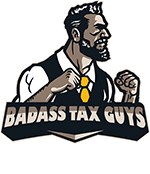Many wonder what the differences are between a CPA (Certified Public Accountant) and an EA (Enrolled Agent).
That’s both an easy question and a hard question to answer. In short, CPAs have to know a great deal about auditing, accounting, tax, business law, valuation, personal finance, planning of various kinds and myriad other things. EAs have to know a great deal about taxes.
It may also help to know a little bit about how individuals become a CPA or an EA. Let’s start with the CPA first.
In order to become a CPA, an individual must have a degree (BA or BS). It’s helpful if it is in Accounting, Finance, Administration or Management. Then, they need to decide where they want to practice. A CPA is licensed on a state level and can only practice in that state. Once they decide where they want to practice, they have to take the exam, which is a pretty standardized exam regardless of the state.
Generally speaking, the exam consists of four sections, 250 questions each section, 1000 questions total: Here are the four general areas of knowledge and testing for the CPA exam:
- Auditing and Attestation (AUD). This section covers knowledge of auditing procedures, generally accepted auditing standards and other standards related to attest engagements, and the skills needed to apply that knowledge.
- Business Environment and Concepts (BEC). This section covers knowledge of general business environment and business concepts that candidates need to know in order to understand the underlying business reasons for and accounting implications of business transactions, and the skills needed to apply that knowledge.
- Financial Accounting and Reporting (FAR). This section covers knowledge of generally accepted accounting principles for business enterprises, not-for-profit organizations, and governmental entities, and the skills needed to apply that knowledge.
- Regulation (REG). This section covers knowledge of federal taxation, ethics, professional and legal responsibilities, and business law, and the skills needed to apply that knowledge.
As you can readily see, there is much more to the life and practice of a CPA than taxation. They are expected to know a lot more, but aren’t necessarily a tax expert.
Assuming they pass that rigorous, 4-part examination, they then have some practice requirements to meet, such as requirements to work under a practicing CPA for a specific period of time.
When CPAs take continuing professional education (CPE), they are free to choose from any number of general topics that they have an interest in, be that accounting, auditing, consulting services, specialized knowledge and applications, management, taxation and ethics.
What about an EA?
There are two ways to become an EA. One is to have worked for the IRS for a minimum of five years. The other is to pass a three-part exam and to undergo a thorough background check.
An EA needs no prior preparer experience in order to take the EA examinations, called the Special Enrollment Examination or SEE. They don’t need to even have filled out a return or ever have to once they become an EA. But they do have to have special competence in tax matters.
The following areas encompass the three exams, which are solely on taxation.
- Part 1 – Individual (100 questions exclusively on the tax code for individuals)
- Part 2 – Business (100 questions exclusively on the tax code for business entities)
- Part 3 – Representation, Practice and Procedures (100 questions primarily on Circular 230, the Treasury Department guide for practicing before the IRS.)
- The bottom line is that EAs must know pretty much everything on income taxes for individuals, small businesses, partnerships, C corporations, and S corporations, They also need to know about inheritance taxes, gift taxes, estate taxes, payroll taxes, and retirement plans as well as non-profits.
For more information on Enrolled Agents, their background and requirements, please view the Enrolled Agent page on our web site. For information about how we can represent you with tax issues, please see our Representation page at 5641040.com.
When Enrolled Agents take their required continuing professional education (CPE), which consists of 72 hours every three years (more if they are NAEA members), it must be 100% in taxation and the ethics of taxation.
When you compare the two designations, CPA or EA, you come to realize that for EAs, tax issues are their only specialty. Their mandatory continuing education is solely on taxation, which means that their focus is on that one topic and very little else, except for mandatory ethics.
The bottom line is: a CPA does not have the tax expertise of an EA.
Part of the problem we face as a tax professional is the public understanding of what these two designations mean and what expertise each one may possess. The reason may simply be that the average taxpayer does not know what an EA is or does. Simply stated, the definition of an EA is: “one who is RECOGNIZED by the IRS as a tax expert.”
Enrolled Agents are the only FEDERALLY Authorized Tax Professionals.
Wouldn’t you rather go to someone who knows taxes for a tax issue and to an accountant for an accounting issue?
